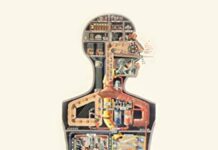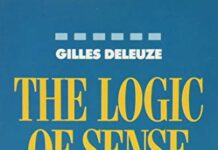
Ebook Info
- Published: 1983
- Number of pages: 221 pages
- Format: PDF
- File Size: 2.81 MB
- Authors: Gilles Deleuze
Description
Nietzsche and Philosophy has long been recognized as one of the most important accounts of Nietzsche’s philosophy, acclaimed for its rare combination of scholarly rigour and imaginative interpretation. Yet this is more than a major work on Nietzsche: the book opened a whole new avenue in post-war thought. Here Deleuze shows how Nietzsche began a new way of thinking which breaks with the dialectic as a method and escapes the confines of philosophy itself.
User’s Reviews
Editorial Reviews: Review The fecundity of this reading and the breadth of its implications can hardly be overestimated. — Viola Brisolin ― The European Legacy About the Author Gilles Deleuze was professor of philosophy at the University of Paris, Vincennes St. Denis. He is the author of Difference and Repitition, Empiricism and Subjectivity, Logic of Sense, Negotiations 1972-1990, and Why Philosophy? (with Felix Guattari)– all published in the European Perspectives series.Hugh Tomlinson, the translator, studied at the University of Paris, attending Deleuze’s seminars.
Reviews from Amazon users which were colected at the time this book was published on the website:
⭐Deleuze is a big philosopher who has an important approch to Nietzsche. The beginning is a strong position for the way which Nietzsche proposes arguments as the will of power, or the return of the same questions in the Greek myth, or the relation between Greek divinities. All that gives significate because Deleuze reconstructs the “pathos” of the German philosopher, and also it exists deep differences between the two, it remains the sense of one philosophy. It is the same the love for the knowledge in a sense which saves the existence, where the men have a role remembering the old myths.
⭐This might have been lecture notes, or something is lost in translation, but I found the prose turgid and disjointed and impenetrable. Headed back to the original source, Nietzsche himself.
⭐I was recommended this book by Jean-Luc Marion as a fairly trustworthy introduction to Nietzsche’s thought. The book did not disappoint. Deleuze’s credal insistence on immanence is capable of giving a systematic shape to Nietzsche’s thought the likes of which can only be compared to Michel Henry’s brilliant assessment in The Genealogy of Psychoanalysis–which I cannot recommend enough as an invaluable philosophical resource.
⭐As Michael Hardt says in the forward, we discover here the concepts and positions that become central to Deleuze’s later work. “…There is no identity from which all the differences in the world emanate, nor any unity to which they fall back…” Deleuze’s preface to the translation begins with Nietzsche’s “posthumous fate… was his thought a forerunner of fascist thinking? And was this thought itself really a philosophy or was it an over-violent poetry, made up of capricious aphorisms and pathological fragments?”
⭐An outstanding book. Deleuze’s reading of Nietzsche is remarkable and for the most part profoundly faithful. Perhaps my only real outright disagreement with Deleuze on Nietzsche is Deleuze’s understanding of the Eternal Return. But even then I must follow Derrida and allow Deleuze to “read philosophy in a certain way”. Deleuze sets up a lot of his own thought in this, so if you are familiar with Nietzsche and are interested in Deleuze this is a must read.
⭐Most certainly one of the deepest and most profound books written about Nietzsche’s philosophy. I had to read it several times to fully understand the book, but it was well worth the time and effort.
⭐I was greatly pleased with this order. The book arrived promptly and it was packaged carefully and thoughtfully. The price was reasonable and, of course, the book itself is excellent – Deleuze is both an insightful thinker and a fruitful reader of Nietzsche. Thank you, Kitab.
⭐Excellent binding, a genuine copy in great condition.
⭐Amazing classic
⭐Over the years there have been a number of good books on Nietzsche, including Walter Kaufmann’s Nietzsche: Philosopher, Psychologist, Antichrist, and Arthur C. Danto’s Nietzsche as Philosopher. Deleuze’s Nietzsche and Philosophy surpasses them all, and to this day remains the best interpretation of Nietzsche.Gilles Deleuze was a professor of philosophy at the University of Paris for two decades, and when it was published, Nietzsche and Philosophy took Paris by storm, marking the end of Jean-Paul Sartre’s dominance of the philosophical scene. Michel Foucault was deeply influenced by this book, going so far as to predict that “Perhaps one day, the century will be Deleuzian.”So where to begin when describing such a landmark book? The most important thing to point out is that Nietzsche and Philosophy is in no way an introductory text. Deleuze understands Nietzsche better than anyone, having been the French editor-in-chief of the definitive edition of his complete works (the Colli-Montinari edition). But in this book Deleuze does not merely re-present Nietzsche. Rather he uncovers the most powerful guiding threads that run through his thought, weaving them into an interpretation that completely transformed philosophical debate in France.Deleuze’s starting point is Nietzsche’s admiration for the pre-Socratic philosopher Heraclitus, who asserts that there is no being, only becoming. Everything is in a continuous state of flux, which Nietzsche calls “the Will to Power.”Within this state of flux, there are “active” forces (that are stronger and more unconscious) and “reactive” forces (that are weaker and more conscious).On a psychological level, active forces correspond to what Daniel Kahneman calls unconscious “system 1”, and reactive forces correspond to conscious “system 2.”In the Gay Science, Nietzsche writes that:”Consciousness is the last and latest development of the organic and hence also what is most unfinished and weak. Consciousness gives rise to countless errors that lead an animal or man to perish sooner than necessary, `exceeding destiny,’ as Homer puts it. If the conserving association of the instincts were not so very much more powerful, and if it did not serve on the whole as a regulator, humanity would have to perish of its misjudgements and its fantasies with open eyes, of its lack of thoroughness and its credulity – in short of its consciousness; rather, without the former, humanity would long have disappeared.Before a function is fully developed and mature it constitutes a danger for the organism, and it is good if during the interval it is subjected to some tyranny. Thus consciousness is tyrannized – not least by our pride in it. One thinks that it constitutes the kernel of man; what is abiding, eternal, ultimate, and most original in him. One takes consciousness for a determinate magnitude. One denies its growth and its intermittences. One takes it for the `unity of the organism.’This ridiculous over-estimation and misunderstanding of consciousness has the very useful consequence that it prevents an all-too-fast development of consciousness. Believing that they possess consciousness, men have not exerted themselves very much to acquire it; and things haven’t changed much in this respect. To this day the task of incorporating knowledge and making it instinctive is only beginning to dawn on the human eye…”“Man, like every living being, thinks continually without knowing it; the thinking that rises to consciousness is only the smallest part of all this – the most superficial and worst part – for only this conscious thinking takes the form of words.”This is Deleuze’s starting point, in a work that is truly breathtaking in its brilliance. If you like Nietzsche, you’ll love this book!
⭐this is an incredible read. deleuze is more rigorous and serious with nietzsche’s metaphysics than it seems nietzsche himself ever was and in doing so he rescues Nietzsche from the world of bronze age hyperbole. the whole substratum of force and will is systematized into a modern analytical frame and developed into the basis for Deleuze’s later work with difference and flow.
⭐Es necesario cuestionar nuestro mundo, como lo hizo Nietzsche.
⭐Not found.
Keywords
Free Download Nietzsche and Philosophy (Columbia Classics in Philosophy) in PDF format
Nietzsche and Philosophy (Columbia Classics in Philosophy) PDF Free Download
Download Nietzsche and Philosophy (Columbia Classics in Philosophy) 1983 PDF Free
Nietzsche and Philosophy (Columbia Classics in Philosophy) 1983 PDF Free Download
Download Nietzsche and Philosophy (Columbia Classics in Philosophy) PDF
Free Download Ebook Nietzsche and Philosophy (Columbia Classics in Philosophy)





